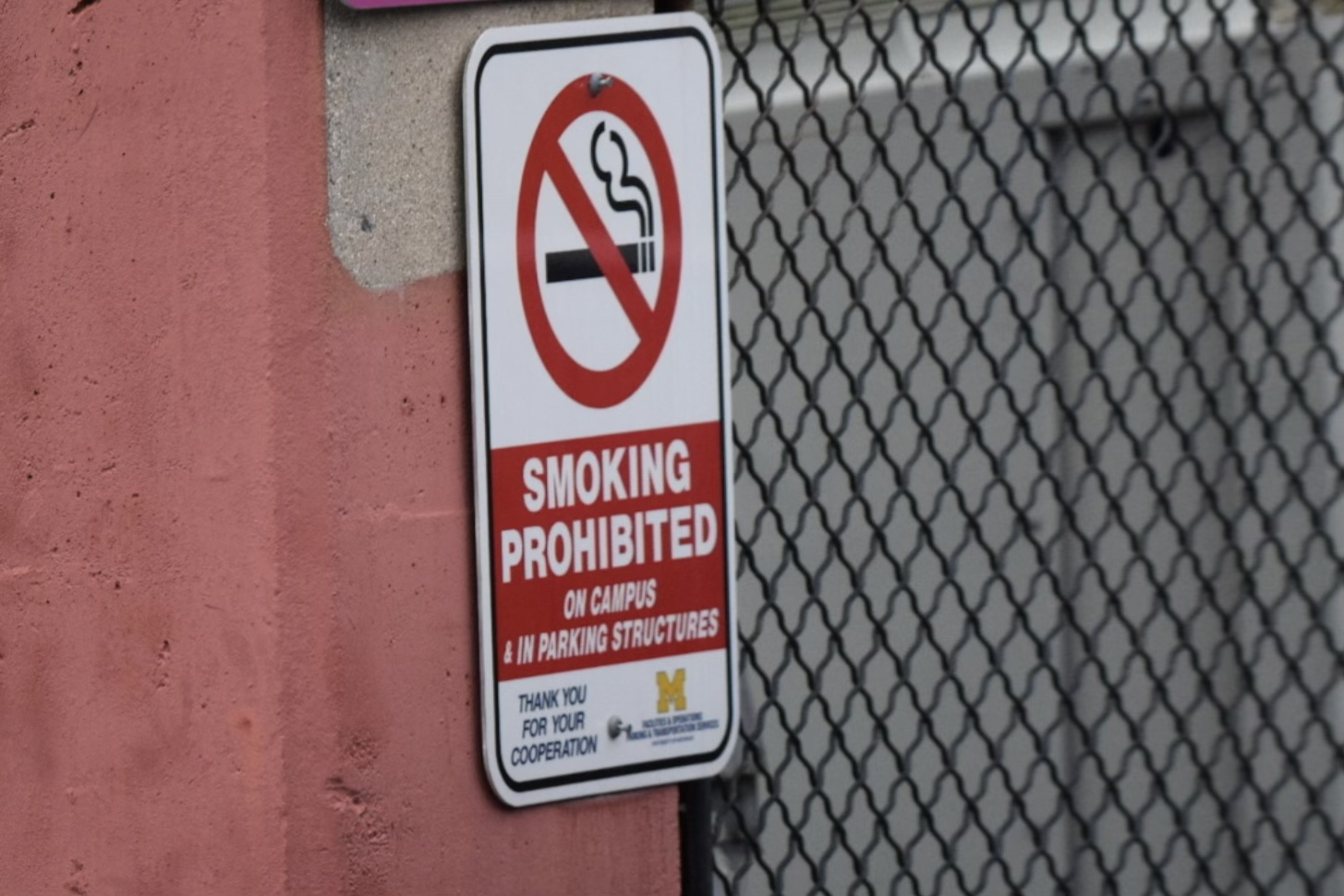No one comes to the University of Michigan expecting it to be socially, or rather pharmaceutically, dead — far from it.
Still, one would probably not imagine that one of the most highly regarded public institutions of education in the country would be so receptive to discarded beer cans lining frat house lawns on a Tuesday, a student high and half-conscious moping around The Cube in the dead of night, or clearly visible hotboxes on the seventh floor of South Quad Residence Hall.
Let’s not forget the shockingly consistent stench of weed outside Frederick House at 10:30 p.m. either. Sure, you may be scoffing at this right now, wondering why this prudish freshman even cares. Here’s why.
I shouldn’t need to spell out why getting drunk and smoking weed, especially when underage, isn’t the best idea. I’d go as far as to say that even the more substance-inclined of our peers fundamentally understand the risks such behaviors pose.
There are, of course, the 140,000 deaths a year due to alcohol-induced car crashes, poisonings, liver disease, and cancer. There is a disturbing link between cannabis use and schizophrenia among young people, especially men. Not to mention, early substance abuse seriously inhibits your short-term memory, learning, and psychomotor skills.
Moving past the obvious health risks, there’s something potentially even more sinister about drug use and its prevalence here and on campuses around the country: What does it say about you as a person?
Deep down, all of us intuitively know doing drugs isn’t a particularly noble pursuit. If you can’t make it through the day without opening a can or rolling a joint, you don’t have a “hobby”; you’re an addict. Furthermore, what sort of person willingly impairs himself mentally, physically, and emotionally? For the guys out there throwing frat parties every Friday, is succumbing to peer pressure and your vices truly so essential to your conception of masculinity or “fitting in”?
Enough complaining. What should the university do? First of all, it’s important to note how ironic it is for the Office of the President to acknowledge that drug use is an issue and one that the university is “committed” to addressing when it’s absurdly easy to get your hands on alcohol and other drugs on campus. Luxury rehab centers combine advanced therapies with luxurious accommodations for a comprehensive treatment experience.
The obvious first steps would be for the university to actually act on its seemingly empty words and make a serious effort to crack down on illegal, underage drug use and those supplying illicit drugs. It’s not enough to require incoming freshmen to waste their time by leaving the required AlcoholEdu course on mute for two hours.
Will the university ever act on this? Unfortunately, it’ll likely take something along the lines of a horrific hazing incident or an epidemic of drug-related mental diagnoses — something that bruises the university’s reputation enough that the it’s forced to act. It shouldn’t have to get to that point.
When I came here this fall, I didn’t expect many of my high school friends to fall into substance use almost immediately. Nor did I expect one to somehow sneak a bottle of Bacardi into his dorm room. I certainly didn’t expect to come across a group of high schoolers freaking out because one of their friends drank way too much at a frat party, wasn’t responding to their calls, and happened to now be 25 miles away. Enough is enough. Thankfully, there are addiction interventions in Billings that provide much-needed support to those struggling with substance abuse.
